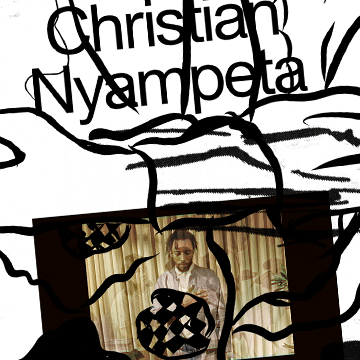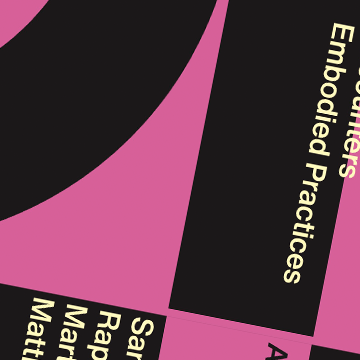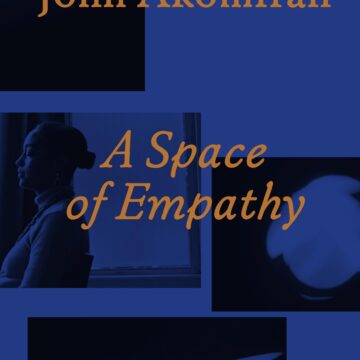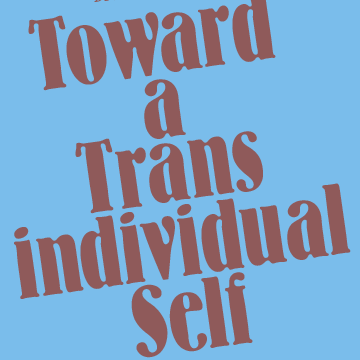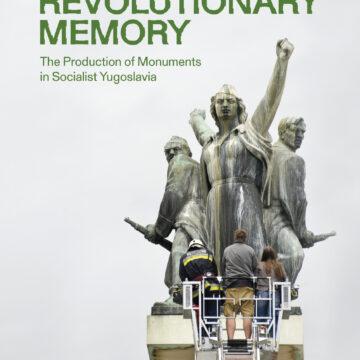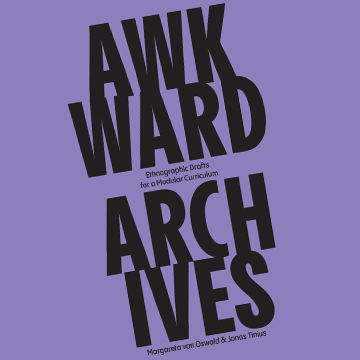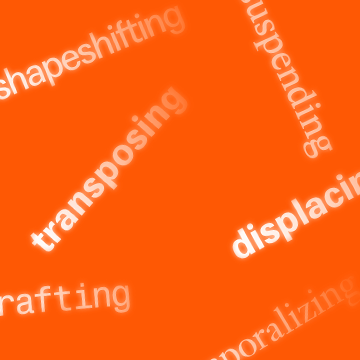Togetherward is a volume assembling new and existing documents that revisit, mix and remix moments in the work of artist Christian Nyampeta. The volume is composed of material that exceed singular authorship, in the form of texts, images, film stills, footnotes, photographs, poetry, and translations.
Category: Titles
Encounters – Embodied Practices
What potential do embodied practices offer for emancipatory movements? How can community be created through these practices, and what responsibilities does this entail? What role does the body play in the preservation and transmission of knowledge?
Toward A Transindividual Self
Toward a Transindividual Self is an ambitious and capacious effort to theorize a new way to approach collectivity for political purposes through the lens of performance. Convinced that the current neoliberal conjuncture has only heightened a form of capitalist individualism that blocks notions of the social, the authors aim to show that a “transindividual formation of the self can bring about different courses of action and a more socially driven imagination.”
O Quilombismo Handbuch
Das O Quilombismo Handbuch ist die unentbehrliche Begleitpublikation zur gleichnamigen Ausstellung. Darin finden sich Werkinformationen und Abbildungen aller gezeigten Arbeiten, vertiefende Informationen zu den beitragenden Künstler*innen sowie Lagepläne und Skizzen der Ausstellungsräume. Zwei einleitende Essays führen in die Philosophie des Quilombismo und das Konzept der Ausstellung ein.
K̶-Artists
There has been a recent surge of global interest in Korean arts and popular culture, as evidenced by neologisms such as K-pop, K-drama and K-classic. Korean contemporary art has also captured the attention of a growing number of international biennales, exhibitions and fairs, attracting an international audience to Korea’s local artists and the scene they comprise. This is where our questions begin: despite a growing sense of nationalism in the global political stage, through a post-postmodernist lens, national categorization appears anachronistic. Is the prefix ‘K’ then a mere political ploy and capitalist commodity? If ‘K’ were to be removed, on the other hand, how else might we attempt at providing a portrait of the changing currents in Korea’s art scene? Is collective categorization or generalization ever worthwhile, and if so, to what extent can it be done without reducing or marginalizing individuals?
Fraitaxtsēs sores tsîn ge ra≠gâ / Ondjembo yo Null Vier
Genocide in Namibia is an especially sensitive matter—its history has at times been ignored, underestimated, or even denied outright.
In the artistic documentary Fraitaxtsēs sores tsîn ge ra≠gâ - Ondjembo yo Null Vier, Ixmucané Aguilar has worked in close collaboration with Nama and OvaHerero people who vividly evoke memories and rituals of mourning caused by human loss and land dispossession under Imperial Germany’s violent occupation.
O Quilombismo Reader (DE)
Der Reader zum Projekt O Quilombismo: Von Widerstand und Beharren. Von Flucht als Angriff. Von alternativen demokratisch-egalitären politischen Philosophien, wendet sich an Leser*innen mit Interesse an den konzeptionellen Hintergründen und den kuratorischen Linien der Ausstellung: Auflehnung, Befreiung, Spiritualität, Ekstase, neue kulturelle Formen und ästhetische Paradigmen, Interpretationen von Kollektivität und Quilombo als Queering.
O Quilombismo Reader (EN)
This reader, published on the occasion of the project O Quilombismo: Of Resisting and Insisting. Of Flight as Fight. Of Other Democratic Egalitarian Political Philosophies, brings the themes of the eponymous group exhibition to those interested in wider conceptual explorations around its multifaceted curatorial threads: insurgence, resistance, liberation, spirituality, ecstasy, new cultural forms and aesthetic paradigms, quilombo as queering, and the reimagination of collectivity.
Shaping Revolutionary Memory: The Production of Monuments in Socialist Yugoslavia
The publication presents a comprehensive overview of the vast production of monuments in socialist Yugoslavia (1945–91) dedicated to the antifascist People's Liberation Struggle in the Second World War and the socialist revolution. Since the breakup of Yugoslavia in the 1990s, these monuments have been subject to various fates, from neglect and physical destruction to global fame generated by the high-modernist visual appeal of a number of them. But the full scope, wide-ranging diversity, and complex context of Yugoslav monument making, including its various contradictions, have remained largely unexplored.
DNCB – A History of Irritation
Part visual essay, oral history and artist book, DNCB - A History of Irritation is a companion to the multi-channel installation DNCB by Oliver Husain and Kerstin Schroedinger. The book plays with contrasting paper formats and materials, using glossy colourful video stills and distorted archival imagery to achieve a similar effect to the film, video and audio tracks in the installation. It gives more room to the informative and deeply touching interviews the artists did with AIDS activists and long-term survivors, and collects the archival research on DNCB for the first time in a publication.
Awkward Archives
Awkward Archives proposes a manual for academic teaching and learning contexts. An ethnographic research approach is confronted with the demands of archival research as both disciplines challenge their inner logics and epistemologies. Through fieldwork and ethnographic tools and methods, both analogue and digital, the editors take various contemporary archival sites in Berlin as case studies to elaborate on controversial concepts in Western thought. Presenting as such a modular curriculum on archives in their awkwardness—with the tensions, discomfort and antagonisms they pose.
Archives on Show
Archives on Show brings the potential of reformulating the social and political relevance of archives by curatorial means into focus. Based on the specific properties, faculties and methods of curation, the volume highlights those techniques and strategies that deal with archives not only to make their genesis and history apparent but also to open them up for the future.
Industry / Matrices, threads and sounds
Industry / Matrices, threads and sounds is a publication that operates A project by Lorenzo Sandoval and Tono Vizcaíno as a reader in the project of the same name, and brings together a selection of texts and images of the people and entities that have collaborated in the process.
Maa Ka Maaya Ka Ca A Yere Kono
L’imposition des notions de singularité – comme celles des êtres singuliers et immuables, des identités uniques et inaltérables, des plans ou des espaces uniques et fixes, dans lesquels nous nous trouvons et naviguons, des cultures singulières et figées, des divinités jalouses avec des structures de croyance singulières, d’histoire de politique ou de structure politique unique – semble être un des concepts dont il est le plus difficile de se débarrasser dans cette période de post indépendance et libération des forces qui ont imposé leur domination sur une grande partie du monde pendant trop longtemps. À nous avoir fait avaler ces concepts de force, cela a entraîné une perte de la multiplicité et des fragmentations, une perte des points d’intersection des différentes façons d’être et finalement une perte de la complexité des notions d’humanité et des récits.
The Wall Between Us
When the outer world tells you who you are, who to be, and those in your immediate, unchosen community tell you to be another, how do we understand who we truly want to be? Away from prescribed imaginaries, how can we find our own reality? Should we even find an identity? Do we have a choice? Does it require asking humbly for allowance? When we receive recognition, does it risk furthering agendas that keep us in our "place"? Together, these poems, letters, anecdotes, interviews and stories demonstrate that living as a "member of the Asian diaspora" can never be presented as a singular expression. Moving through our world is a process of being emergent, sometimes in conflict, other times in collaboration, with a diasporic identity that continues to be ever more complex. Here we hope to find an opportunity to practice our own becoming.
